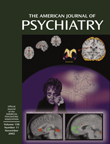Applications of Errorless Learning for Improving Work Performance in Persons With Schizophrenia
Abstract
OBJECTIVE: Until recently, few training methods used in the psychosocial rehabilitation of persons with schizophrenia have taken into account the neurocognitive deficits common to this illness. The present study tested a training method called errorless learning (which theoretically compensates for neurocognitive impairments) for efficacy at teaching entry-level job tasks to persons with serious and persistent mental illness. METHOD: Sixty-five unemployed, clinically stable outpatients with schizophrenia or schizoaffective disorder were randomly assigned to training by means of either errorless learning or conventional instruction for two entry-level job tasks (index card filing and toilet tank assembly). Training was conducted in small groups of four subjects for 90–120 minutes in a simulated workshop. Efficacy—as measured by accuracy, speed, and overall productivity—was assessed immediately after training and at a 3-month follow-up evaluation. RESULTS: Significant group differences in accuracy that favored errorless learning were found on both job tasks. In terms of productivity, the errorless learning group was superior to the conventional instruction group on the card filing task, and differences for the tank assembly task approached significance. There were no significant group differences in speed. Both groups showed significant drops in accuracy and productivity on the tank assembly task from immediately after training to the 3-month follow-up evaluation; performance levels were more stable for both groups on the card filing task. CONCLUSIONS: Errorless learning appears to be a useful training method for establishing introductory high levels of performance in the work rehabilitation of persons with schizophrenia. Future studies may wish to test its long-term durability by embedding it within supported employment programs.



